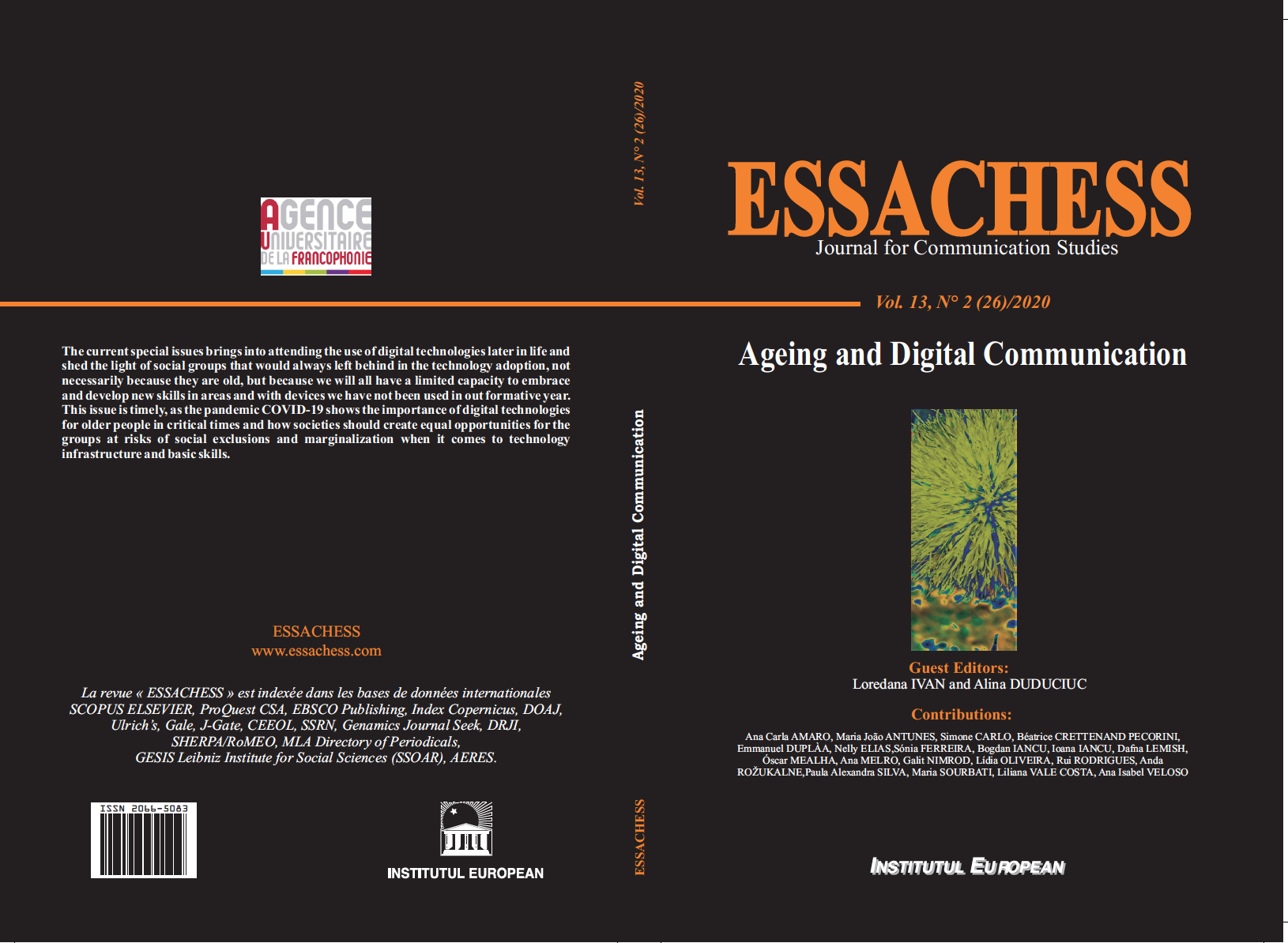La gérontologie narrative numérique : porte ouverte sur les apprentissages informels intergénérationnels et les communications numériques
Digital Narrative Gerontology: an open door for informal intergenerational learning and digital communications
Author(s): Béatrice Crettenand Pecorini, Emmanuel DuplàaSubject(s): Anthropology, Social Sciences, Economy, Education, Psychology, Media studies, Communication studies, Sociology, Cultural Anthropology / Ethnology, Culture and social structure , Adult Education, Higher Education , Educational Psychology, State/Government and Education, Individual Psychology, Social psychology and group interaction, Cognitive Psychology, Comparative Psychology, Developmental Psychology, Experimental Pschology, Personality Psychology, Psychology of Self, Clinical psychology, Social development, Social Theory, Family and social welfare, Policy, planning, forecast and speculation, Demography and human biology, Gerontology, Rural and urban sociology, Sociology of Culture, Social Norms / Social Control, ICT Information and Communications Technologies, Sociology of Politics, Inclusive Education / Inclusion, Sociology of Education
Published by: ESSACHESS
Keywords: gerontagogy; digital literacies; digital storytelling; unformal learning; intergenerational
Summary/Abstract: Ontario’s action plan for seniors recognizes that seniors have health and education needs, among other needs (Gouvernement de l’Ontario, 2017). To partially meet these needs, we have proposed an innovative gerontagogical approach by combining two existing concepts: narrative gerontology with digital storytelling. Thus, by this new concept of Digital Narrative Gerontology, we give seniors a special place for the elaboration of the message they wish to bequeath to other generations, by creating together their life testimonies in digital form easy to share, while mutually acquiring new digital skills and exploiting the benefits of narrative gerontology, such as well-being, aging well, resilience and wisdom, but also informal and intergenerational learning. Communication was important on two levels: between the elder and the researcher during the oral narration and the creation of the digital narration in a relationship of mutual trust as well as in the form of digital testimony with a key message to transmit, during the broadcast of the digital narration. This research also made it possible to respond to the curiosity of the elders for new matters in a reassuring framework, adapted to their level, while respecting their learning pace and the choices of knowledge that they wish to acquire. Seniors were proud to share their digital creation with those they had chosen, thus opening the space for discussions, exchanges, emotions and the open door to a new intergenerational “narrative” and social interactions - sources of learning.
Journal: ESSACHESS - Journal for Communication Studies
- Issue Year: 13/2020
- Issue No: 26 (2)
- Language: French

